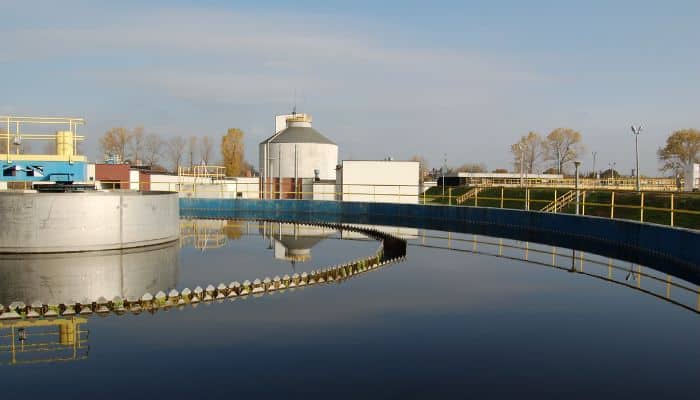The Growing Importance of Sustainable Water Treatment Solutions
Water is an essential resource for all forms of life on Earth. It sustains our ecosystems, supports agriculture, and is vital for human survival. However, with the increasing global population and industrialization, the demand for water has been steadily rising, while the availability of clean and fresh water sources is becoming scarce. In light of these challenges, the importance of sustainable water treatment solutions has grown significantly. This article explores the significance of sustainable water treatment and highlights the benefits it brings to our society and the environment.
Contents
Introduction
Water treatment plays a crucial role in ensuring the availability of clean and safe water for various purposes, including drinking, agriculture, and industrial use. However, conventional water treatment methods often rely on non-renewable resources, consume excessive energy, and produce harmful by-products. Sustainable water treatment solutions providers in Dubai offer an alternative approach that minimizes environmental impact while efficiently meeting the demand for clean water.
The Need for Sustainable Water Treatment
The world’s population is growing rapidly, leading to increased pressure on water resources. Moreover, pollution from industrial activities, agricultural runoff, and inadequate wastewater management further exacerbate the water crisis. To address these challenges, it is imperative to adopt sustainable water treatment practices that preserve and protect our water sources.
Challenges in Traditional Water Treatment Methods
Traditional water treatment methods have several limitations. They are often energy-intensive, relying on fossil fuels for power generation. Additionally, they may use large quantities of chemicals, which can have adverse effects on aquatic ecosystems and human health. Furthermore, these methods are not designed to handle emerging contaminants, such as pharmaceuticals and microplastics, which pose new challenges to water quality.
The Advantages of Sustainable Water Treatment Solutions
Sustainable water treatment solutions offer numerous benefits over traditional methods. Firstly, they utilize renewable energy sources, such as solar and wind power, reducing the carbon footprint associated with water treatment. Secondly, these solutions emphasize the use of natural processes and materials, minimizing the need for chemical additives and reducing ecological harm. Finally, sustainable water treatment technologies have the potential to recover valuable resources, such as nutrients and energy, from wastewater, creating a circular economy approach.
Types of Sustainable Water Treatment Technologies
- Rainwater Harvesting: Rainwater harvesting involves collecting and storing rainwater for various uses, such as irrigation, toilet flushing, and laundry. This decentralized approach reduces the strain on centralized water supply systems and promotes self-sufficiency.
- Greywater Recycling: Greywater is wastewater generated from household activities like bathing, laundry, and dishwashing. Greywater recycling systems treat and filter this water for reuse in non-potable applications, such as landscape irrigation and toilet flushing.
- Desalination: Desalination is the process of removing salt and other impurities from seawater or brackish water to make it suitable for drinking or irrigation. Advances in desalination technologies, such as reverse osmosis, have made the process more energy-efficient and cost-effective.
- Constructed Wetlands: Constructed wetlands mimic natural wetland ecosystems to treat wastewater. These engineered systems use plants, microorganisms, and porous media to remove pollutants and improve water quality.
Promoting Sustainable Water Treatment Practices
To encourage the widespread adoption of sustainable water treatment practices, it is crucial to promote awareness and provide education on the benefits and methods of implementation. Governments, non-profit organizations, and educational institutions can play a vital role in conducting awareness campaigns, offering training programs, and incentivizing the use of sustainable technologies.
Government and Corporate Initiatives
Governments and corporations worldwide are recognizing the importance of sustainable water treatment solutions. They are implementing policies and regulations to promote water conservation, invest in research and development of innovative technologies, and support projects that aim to improve water quality and availability.
Economic Benefits of Sustainable Water Treatment
Sustainable water treatment solutions can have significant economic advantages. They reduce operational costs in the long run by minimizing the use of chemicals, energy consumption, and reliance on external water sources. Moreover, adopting sustainable practices enhances the resilience of communities and businesses against water scarcity and potential disruptions in the water supply.
The Role of Education and Awareness
Education and awareness play a critical role in encouraging individuals and communities to embrace sustainable water treatment practices. By understanding the importance of water conservation and the benefits of sustainable technologies, people can make informed choices and actively contribute to preserving this vital resource.
Conclusion
The growing importance of sustainable water treatment solutions cannot be overstated. With the global water crisis becoming more severe, it is imperative to shift towards sustainable practices that protect our water sources, reduce energy consumption, and promote ecosystem health. By adopting innovative technologies and fostering a culture of water conservation, we can ensure a sustainable and secure water future for generations to come.
FAQs
What is sustainable water treatment?
Sustainable water treatment refers to the use of environmentally friendly technologies and practices that minimize the impact on natural resources while efficiently treating and managing water.
How does rainwater harvesting work?
Rainwater harvesting involves collecting rainwater from rooftops or other surfaces, storing it in tanks or reservoirs, and utilizing it for various purposes like irrigation, cleaning, or toilet flushing.
What are the advantages of greywater recycling?
Greywater recycling reduces the strain on freshwater resources, reduces the volume of wastewater, and provides a local source of water for non-potable uses, such as landscape irrigation.
Is desalination a sustainable water treatment option?
Desalination can be sustainable when combined with renewable energy sources and efficient technologies. It helps meet water demand in coastal regions where freshwater resources are limited.
How can individuals contribute to sustainable water treatment?
Individuals can contribute by conserving water, adopting water-saving practices at home, promoting awareness in their communities, and supporting initiatives that aim to improve water quality and availability.



Comments are closed.